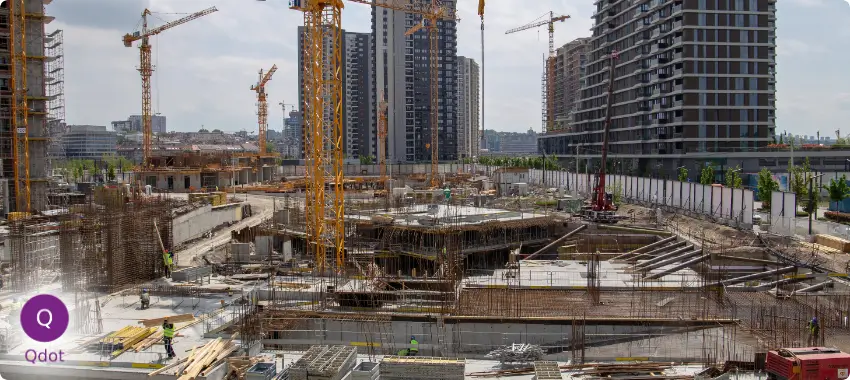
The Construction sector is the backbone of economic development which includes the planning, design, and construction of buildings and other infrastructures. This diverse industry includes residential, commercial, industrial, and civil engineering projects. Given the complexity and scale of construction projects,ISO certifications are essential to ensuring that construction companies meet quality, safety, and environmental standards while maintaining efficiency and reducing risks.
Main Industry Groups
1. Construction of Buildings- Residential buildings: Construction of single-family homes, multi-family units, and apartment complexes.
- Non-residential buildings: Construction of commercial and industrial buildings such as office spaces, shopping malls, hospitals, and schools.
- Roads and railways: Construction of highways, bridges, tunnels, railways, and other transport infrastructure.
- Utility projects: Construction of utilities such as water supply systems, electricity grids, and telecommunications networks.
- Demolition and site preparation: Demolition of existing structures and preparation of construction sites for new projects.
- Electrical, plumbing, and other installations: Specialized activities such as the installation of electrical systems, plumbing, HVAC, and other infrastructure components.
- Building completion and finishing: Final stages of construction, including plastering, painting, flooring, and other finishing tasks.
- Landscaping: Design and maintenance of outdoor spaces and green areas, including parks, gardens, and recreational areas.
- Maintenance and repair: Ongoing work related to the maintenance and renovation of existing buildings and infrastructure.
Top ISO Certifications in the Construction Industry
ISO certifications play a crucial role in improving the quality, safety, and sustainability of construction operations. Relevant certifications include:
- ISO 9001:2015: A quality management system that ensures efficient construction processes, enhances customer satisfaction, and promotes continual improvement.
- ISO 14001:2015: Focuses on environmental management, helping construction firms reduce their environmental impact and comply with sustainability regulations.
- ISO 45001:2018: Occupational health and safety management systems that ensure safe working conditions, reducing accidents and health risks on construction sites.
- ISO 50001:2018: Encourages energy management practices to optimize energy consumption in construction projects and reduce costs.
- ISO 31000:2018: Risk management standard that helps construction companies identify, assess, and mitigate potential risks in their operations.
Why ISO Certification for the Construction Industry?
ISO certifications provide numerous benefits to construction companies, from improving quality management and safety standards to promoting environmental sustainability. These certifications ensure that companies follow industry best practices, comply with regulatory requirements, and reduce risks related to safety, quality, and environmental impact. Certified organizations demonstrate their commitment to building excellence, worker protection, and sustainable development, which enhances their credibility and gives them a competitive edge in local and international markets.
